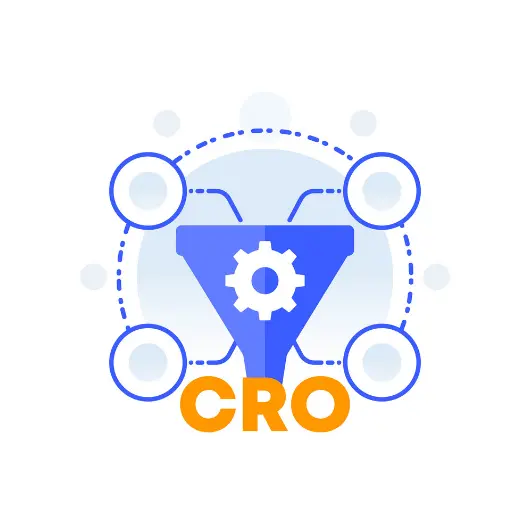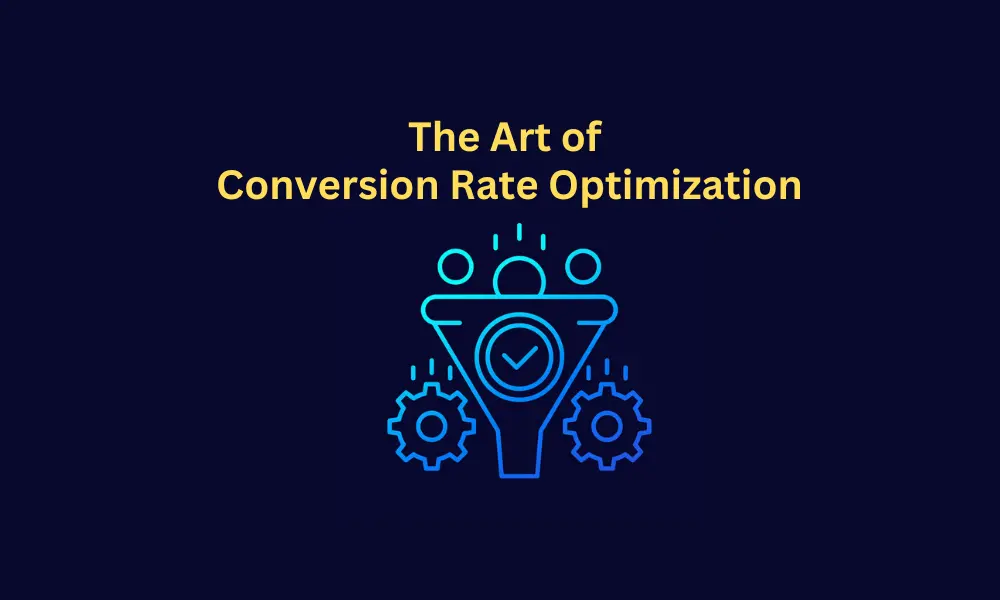Conversion Rate Optimization (CRO) is an essential digital marketing strategy aimed at increasing the percentage of website visitors who take a desired action. Whether it’s making a purchase, filling out a form, or subscribing to a newsletter, CRO is about fine-tuning your website to convert more visitors into customers. But why is it so crucial, and how can you master this art? Let’s dive in.

What is Conversion Rate Optimization?
Conversion Rate Optimization is the process of enhancing your website to boost the likelihood of visitors performing specific actions. This could involve adjusting your website design, improving your content, or refining your call-to-actions (CTAs).
Why Marketers Rely on CRO
Marketers rely on Conversion Rate Optimization (CRO) because it helps maximize the effectiveness of their marketing efforts. By focusing on improving conversion rates, marketers can increase the number of leads or sales generated from their existing traffic. This is crucial for optimizing return on investment (ROI) and making the most of limited marketing budgets.

CRO also allows marketers to gain insights into customer behavior and preferences, enabling them to tailor their strategies for better engagement and conversions. Overall, CRO plays a vital role in driving growth, improving customer experience, and achieving business objectives in a competitive digital landscape.
Steps to Effective Conversion Rate Optimization

Analyzing Current Performance
Tools like Google Analytics and Hotjar can provide insights into visitor behavior, highlighting areas where improvements are needed. Set clear, measurable goals for what you want to achieve with your CRO efforts.
Understanding Your Audience
Develop detailed profiles of your ideal customers to better tailor your website experience to their needs. Gather feedback directly from your users to understand their pain points and preferences.
Improving User Experience (UX)
Ensure your website is easy to navigate, with a clear path to conversion. Fast-loading pages reduce bounce rates and improve the overall user experience.
Optimizing Content
Your call-to-actions should be clear, enticing, and strategically placed. Experiment with different headlines, images, and CTAs to see what resonates best with your audience.
Leveraging Social Proof
Positive feedback from existing customers can build trust and encourage conversions. Trust badges and certifications can reassure visitors of your website’s security and credibility.
Key Metrics in CRO

Conversion Rate: This metric indicates the percentage of visitors who take the desired action, such as making a purchase or signing up for a newsletter. A higher conversion rate signifies better engagement and performance of your website.
Bounce Rate: This measures the percentage of visitors who leave your site after viewing only one page. A high bounce rate could indicate issues with user experience, content relevance, or website load speed, impacting overall conversion rates.
Average Session Duration: This metric reflects the average time visitors spend on your site. A longer duration often indicates engagement and interest in your content, potentially leading to higher conversion rates. It’s crucial for understanding user behavior and optimizing website content and navigation.
Why We Need Conversion Rate Optimization
There are numerous reasons marketers have to rely on conversation rate optimization.
| Reasons for Conversion Rate Optimization | Explanation |
| Maximizing Marketing ROI | By optimizing your conversion rate, you get more value from your marketing efforts, ensuring that your investment translates into actual sales and growth. |
| Enhancing User Experience | CRO focuses on making your website more user-friendly, which can lead to higher customer satisfaction and retention. |
| Staying Competitive | In today’s digital landscape, staying ahead of the competition means continuously improving your website’s performance and conversion rates. |
| Reducing Acquisition Costs | Effective CRO can lower your customer acquisition costs by converting more of your existing traffic, reducing the need to spend more on attracting new visitors. |
| Building Customer Trust | A well-optimized website that meets customer needs effectively can enhance your brand’s reputation and build long-term trust with your audience. |
Conclusion
Mastering the art of Conversion Rate Optimization is crucial for any business looking to thrive in the digital age. By understanding your audience, analyzing your current performance, and continuously refining your website, you can significantly boost your conversion rates and drive business growth. Remember, CRO is an ongoing process that requires regular attention and adaptation.
Read more : Trends and Predictions for the Digital Landscape in 2024
FAQs
The main goal of CRO is to increase the percentage of website visitors who take a desired action, such as making a purchase or filling out a form.
Success can be measured using key metrics such as conversion rate, bounce rate, and average session duration. Tools like Google Analytics can provide detailed insights.
Common strategies include improving website design, enhancing content, conducting A/B testing, and leveraging social proof through testimonials and reviews.
CRO is an ongoing process. Regular updates and testing are essential to keep up with changing user behavior and industry trends.

Alex Mitch
Welcome to my blog! With over 10 years in digital marketing , I’ve seen its incredible impact on smaller businesses. Join me as we explore how digital marketing can grow your audience and boost your business. Whether you’re an experienced entrepreneur or just starting out, you’ll find practical tips and insights to enhance your digital marketing strategies.





